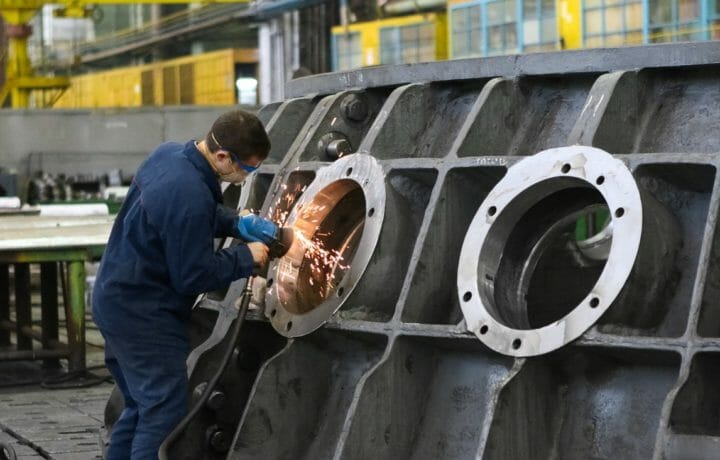During the Second World War the state of Michigan transformed from the “Motor City” to the Arsenal of Democracy, as the automotive plants of Chrysler, Ford and General Motors produced the tanks, trucks, planes and even the field kitchens and bullets that helped win the war. In the years that followed World War II, the population of Michigan swelled and the state was instrumental in the building of a strong middle class.
However, in recent years the state has seen the population decline, and Michigan isn’t quite the automotive manufacturing powerhouse that it once was. While the Great Lakes State maintains a skilled workforce and has seen rebirth in some areas, other areas, such as the capital city of Lansing, remain very much in the “rustbelt.”
Yet, the Lansing Economic Area Partnership (LEAP) has unveiled a plan that could turn the region into a center for the defense sector. At present Michigan is only ranked 22nd out of the 50 states in terms of defense contracting. Defense contracting has still contributed roughly 1,670 jobs and brought millions of dollars to the Lansing area.
LEAP, which was formed in 2007, consists of a coalition of area leaders committed to building a prosperous and vibrant region – one where business can thrive. It was also awarded a Defense Industry Growth Regional Grant from the Michigan Economic Development Corporation (MEDC) in 2018 to assist the MEDC and the Michigan Defense Center in better understanding and expanding key defense and homeland security industry growth sectors across Michigan.
The trade group unveiled a report that outlined the region’s assets in key defense and homeland security sectors at the Mid-Michigan Aerospace and Defense Industry Overview Summit. The event, which was hosted in partnership with LEAP member Miller Canfield Lansing, highlighted the opportunities for Lansing area companies interested in exploring federal contracts as a path to growth and revenue diversification. Based on the defense industry analysis conducted by the Protect & Grow Initiative, Michigan could be poised to leverage its assets and skilled workforce in key defense and homeland security sectors.
Key Growth Sectors for michigan’s defense industry
LEAP’s “Lansing Region Defense & Homeland Security Industry Report 2019” identified several sectors including 3D printing, aerospace, advanced manufacturing, autonomous aerial systems, autonomous ground systems, cybersecurity and robotics as key to the area’s revitalization. However, the reported noted that a problem remains – this is finding a feasible and efficient way for businesses serving those sectors to access resources to support growth.
To that end Michigan needs to strengthen its ecosystem for the defense and homeland security industry in a strategic way, which could then allow businesses to grow to meet the needs of the U.S. military. At the recent summit, the Miller Canfield team discussed the complex ecosystem.
“There’s no reason why the Lansing region can’t become a leader in the defense industry given its many assets,” said Steve Arwood, CEO Miller Canfield Consulting, via a statement.
Part of the strategic plan for Michigan’s future in the defense and homeland security sectors include promoting and safeguarding Acquisition, Technology and Logistics (ATL) capabilities at the Detroit Arsenal; establishing an innovation center at the arsenal; investing state resources to enhance military installations as well as defense and homeland security missions; expansion of training ranges; creating new branding for the defense industry in Michigan; and connecting veteran talent to local industry.
The report also called for a better link between defense and the domestic automotive industry with the establishment of an autonomous vehicle corridor on Interstate 69. LEAP’s report also offered a thorough SWOT analysis based on survey data collected from area companies in 2019, and moreover it discussed how companies can identify and win DoD and DHS contracts with the dynamic array of support organizations from the regional Procurement Technical Assistance Center (PTAC) to Lansing Community College’s Business Community Institute to LEAP and the Michigan Defense Center.
“Our next steps at LEAP are to use this report as a tool for working with partners to grow, diversify and better connect the aerospace and defense cluster across Michigan,” said Keith Lambert, vice president of Business Attraction at LEAP in a statement. “The Lansing area’s manufacturing prowess produces some of the highest quality products and materials in the world–when these goods fit the needs of the federal government and our armed services, we want to make those connections.”


